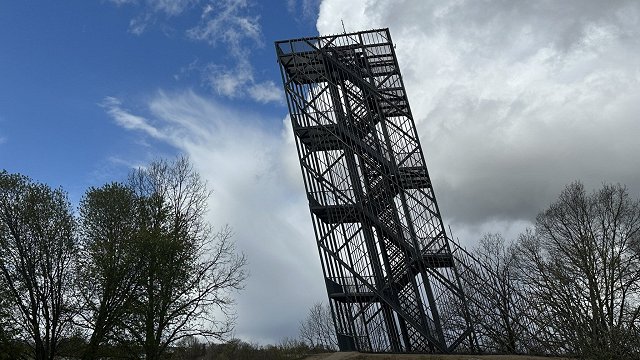Currently, small farms and households are tidying up their surroundings. Dry branches are being sawn, last year's grass collected and thrown in fire along with municipal waste.
Riga Municipal Police spokesman Toms Sadovskis said that it is prohibited to burn not only municipal waste but also biological waste.
“This means that your old tires, everyday waste, food packages and so on, of course, should not be burned, but also last year's leaves, compost, should not be burned. Any such waste is prohibited from being burned,” Sadovskis said.
It is not only illegal and punishable, but also a serious threat to health.
“If we look at the composition of the waste, then we see that waste most often contains hazardous chemicals. There is a relatively low temperature when burning waste in the fire and all these chemicals do not burn completely. In other words, they are distributed to the environment. And here, of course, the first risk is for the firemaker, as he inhales these poisonous smoke. But there is also such a long-term risk to the environment and human health, as these toxic substances are emitted into the air, and consequently they are later landing on the soil,” explained Kristīne Kļaveniece, head of public relations at the State Environmental Service.
When it comes to soil, the most dangerous are so-called heavy metals, various persistent organic compounds – carcinogenic dioxins and furans. They are highly toxic and accumulate in living organisms, calling for a series of adverse effects, such as human and animal diseases, congenital defects, can cause cancer, allergies, damage the nervous system and the immune system. These very stable compounds can remain in the environment for several years, even decades before they become degradable.
Kļaveniece said a new trend has been observed this year – burning pipes to produce scrap metal. Even cars were burned on a farm, because it was easier to scrap metals without additions. The investigation into the case is still ongoing.
According to Kļaveniece, the most common reason for the incineration of waste is that the waste producer does not have a waste management contract at all or that the contract is purely formal.
Latvian Local Government Association councilor Sniedze Sproģe said that often people who have a contract for the removal of waste everyday in Rīga do not conclude another contract in their cottage or country house.
“Every place where waste is generated requires this contract and the waste has to be managed,” Sproģe pointed out.
Not everyone will burn waste. But is it true that last leaves and other waste from garden work should not be burned?
“Leaves, branches, such things may be burned in a private house, in a special place, in accordance with fire safety, if permitted by the local government's binding rules. If not allowed, you should not,” Sproģe said.
Sproģe added that “you shouldn't annoy neighbors, so if neighbors don't like it, then you shouldn't”. This is also included in Rīga rules. If there are no complaints from neighbors, small quantities of branches may be burned.
So, before throwing waste into the fire, you have to find out the rules of your municipality. They will not be the same throughout Latvia. For example, in Riga, the municipal police can pay a visit just because smoke is disturbing neighbors.

























